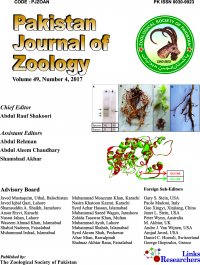Increased Risk of Infertility, Marital Maladjustment and Psychological Morbidity in PCOS Patients of Southern Punjab, Pakistan
Increased Risk of Infertility, Marital Maladjustment and Psychological Morbidity in PCOS Patients of Southern Punjab, Pakistan
Amna Mushtaq, Asia Bibi* and Nahid Kausar
ABSTRACT
The clinical manifestations of polycystic ovarian syndrome (PCOS) have been linked with psychotic morbidity and infertility in the women of fertile age. Considering limited research data available about the psychological aspects in these patients, we conducted current study to assess psychotic distress and infertility in PCOS patients of southern Punjab, Pakistan. In this study 204 PCOS women and 150 controls were enrolled. Data of recruited patients was collected from different hospitals of South Punjab. A standardized questionnaire was used for obtaining formal consent and ethical approval. Our findings revealed that psychological morbidity was most common among infertile PCOS patients. The prevalence of anxiety (61.8% vs. 18.7%), depression (56.9% vs.15.3%), sleep apnea (35.3% vs. 6.7%), eating disorders (18.1% vs. 1.3%), marital maladjustment (27.5% vs. 5.3%), poor quality of life (35.3% vs. 3.3%) and migraine (55.4% vs. 10.7%) was significantly high in PCOS women as compared to controls (p<0.001). Infertility was significantly linked to psychotic implications and PCOS female (p<0.001). So, infertile PCOS patients were more depressed and anxious as compared to fertile. Infertility, especially primary infertility represents a major risk factor for psychological implications in Pakistani PCOS women of southern Punjab. Psychological disturbance was found to be more prevalent in married females as compared to unmarried females.
To share on other social networks, click on any share button. What are these?










